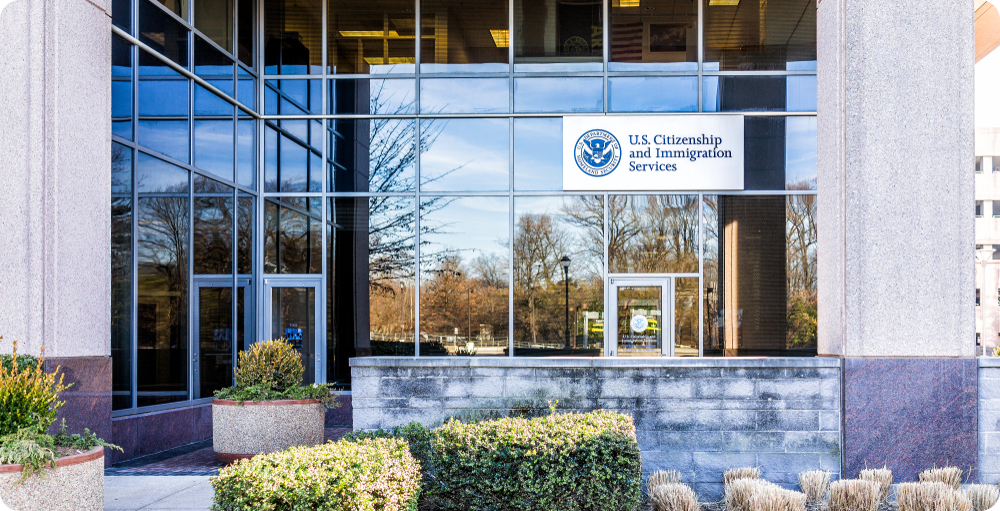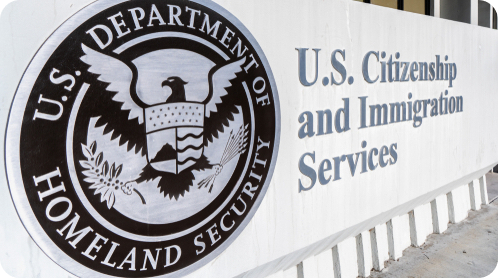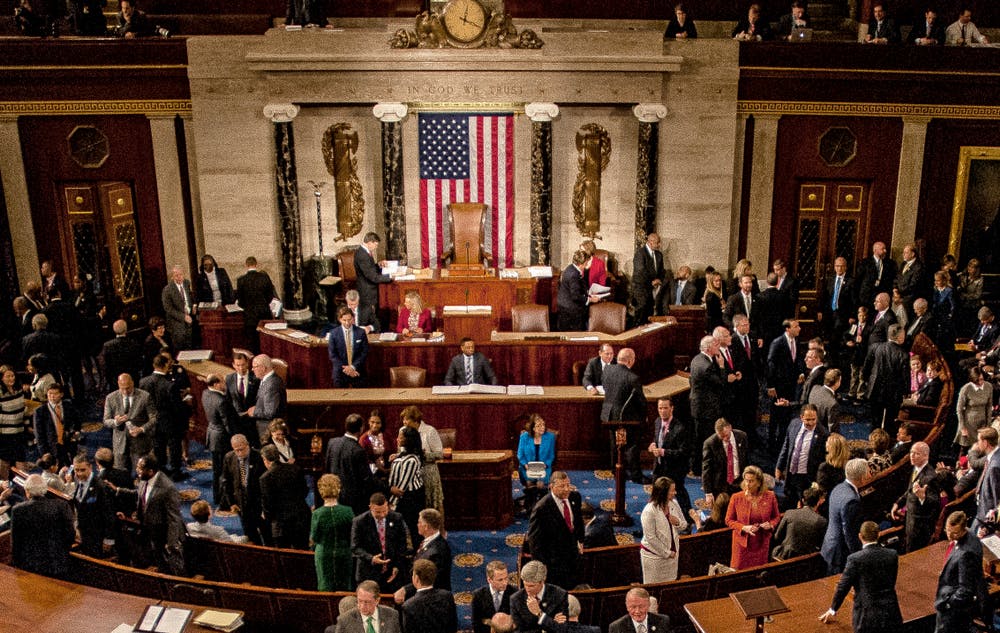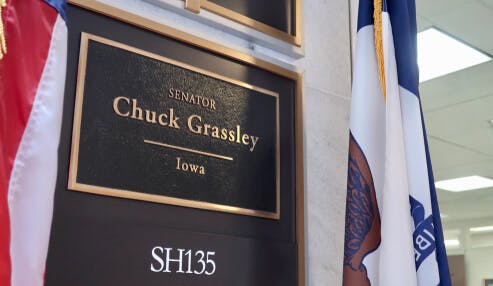The bipartisan bill, introduced by Senators Chuck Grassley (R-Iowa) and Patrick Leahy (D-Vt.), has the full support of IIUSA. Key benefits of the bill include a 5-year reauthorization; “reasonable” reform measures and oversight; protections for regional centers, new commercial enterprises, and investors; and “timely processing” measures that would aim for a 120-day average to process an EB-5 investor petition in a Targeted Employment Area. IIUSA states that this bill is “far more in favour of investors and industry than prior bills.” The association sees this bill as a first step before seeking more visas for EB-5.EB-5 reform has been a long-standing issue for the program with various bills being proposed the last several years. The latest iteration of a reform bill, the EB-5 Reform and Integrity act of 2020, could be the one that actually passes. More than that, it should pass.
IIUSA fully supports the bill
The national not-for-profit EB-5 association IIUSA has thrown its full support behind this bill in the hopes that it will silence critics of the program, and protect both regional centers and investors from “bad actors” whose mismanagement and even fraud have tarnished the program’s laudable economic accomplishments.Too many people have focused on the what’s wrong with the program and not what’s right: incredible economic stimulus with each approved investor creating 10 full-time U.S. jobs and injecting what is now at least $900,000 USD into local economies.IIUSA president Bob Kraft explains why the association is behind the bill: “A long-term reauthorization can generate more than $9B annually of job-creating investment into our economy, just when our economy needs it most – all at zero cost to the taxpayer.”He goes on to remind us that support for the bill extends far beyond the walls of the IIUSA Washington headquarters: “Mayors from around the country, including the U.S. Conference of Mayors, trade associations, chambers of commerce, travel organizations, health care organizations, and many others stand with IIUSA to support this reauthorization.”
The first reason why this EB-5 reform bill ought to be passed: long-term stability
IIUSA points to many particulars of the EB-5 Reform and Integrity Act of 2020 to show why it merits passage into legislation. Firstly, it gives the program some welcomed stability for everyone from stakeholders to investors: a five-year reauthorization for a program that has been living on short-term reauthorizations and imminent “sunset” dates for years.
‘Reasonable’ EB-5 reform
The association also lauds the bill for introducing reform measures that are “reasonable.” While many of the program’s critics have falsely portrayed the industry as being riddled with abuse, most industry stakeholders agree that stronger measures are needed to enforce the proper operation of the program and to prevent bad actors from harming investors and the industry itself.
Protections for regional centers and new commercial enterprises
When mismanagement or fraud occurs, sometimes investors aren’t the only victims. IIUSA sees the new proposal as having significant protections for regional centers and NCE’s in the event the job-creating entity (JCE) becomes barred. Further, regional centers would not be strictly liable for third-party acts.
EB-5 investor protections
The most outspoken critics of the program seem to imply that waves of fraud-committing investors are taking advantage of EB-5. The truth is diametrically opposed to this misconception: investors are almost always the victims — rather than the perpetrators — of EB-5 fraud and the strict background checks on petitioners and their source of funds makes “slipping into the country”through the EB-5 program, extremely difficult.IIUSA points out that the new bill allows investors to use recovered funds for a new investment in the case of a debarred project, as well provides “ageing out” protection for children, and priority date retention that would save such victims of wrong-doing from going back to the beginning of the line to file once again.
No retroactive application for current investors
To maintain fairness and not having all parties scrambling to conform to unforeseen regulations, the measures in the bill would not be applied to current investors.
The ‘best legislative package the industry has been able to negotiate’
IIUSA doesn’t shy away from saying this bill is as good as we are likely to get; the trade association has decreed it’s the “most industry-friendly of all the integrity measures in prior bills, including the Flake-Shcumer [bill] from 2015. The industry will not get a better deal in terms of reasonableness of oversight than this bill.”
The stepping stone to increased EB-5 visa numbers
Beyond the immediate benefits of increased integrity and protections for stakeholders and investors alike, this bill could play a key role in something everyone in EB-5 has wanted for years: more visas each year.IIUSA states that, “the EB-5 industry suffers from declining support and shrinking leverage because of high-profile fraud and a lack of reform.” The association is confident that increasing integrity and bringing about much-needed reform is the way forward to gain better leverage with legislators when it comes to increasing the number of visas.Such an increase could be effected either through an increased yearly quota, or amending the current 10,000 yearly quota to only include principal investors and not derivative family member; not counting family members, as Congress first intended, would roughly triple the number of visas available each year.EB-5 needs more visas and reform to silence critics is the first step to that goal.
Breakdown of EB-5 Reform and Integrity Act 2020
IIUSA, courtesy of immigration lawyer Caroylyn Lee, has performed a section-by-section summary of the bill. Here are some highlights:
Section 2: reauthorization and reform of the regional center program
This is where the additions begin (section 1 is merely the title of the bill). This section of the new bill adds onto Section 203(b)(5) of the Immigration and Nationality Act (8 U.S.C. 1153(b)(5)).
- Includes current regional center standards
- Attestations of compliance with subparagraph (H) [Bona fides of persons involved with regional center program) are required
- Job creation: up to 90% of job creation may be indirect
- 10% of job creation must be direct and this may include employees of the new commercial enterprise (NCE) or job-creating entity
- Records for each regional center must be maintained for five years
- Audits for each regional center must occur every five years
- Business plans for regional center investments (aka “exemplar” applications on a Form I-924) must be filed and include the following: material investment risks associated with the new commercial enterprise or job creating entity; conflicts of interest; any material litigation or bankruptcy for the last 10 years; any fees paid to agents, finders, or broker-dealers
- Business plans for regional centres do not necessarily have to be filed before investor petitions are filed
- Annual statements must be filed by each regional center and must certify, after a due diligence investigation, that it is compliant with subparagraph H (Bona fides of persons involved with regional center program — no “bad actors”) and subparagraph K (Direct and third-party promoters, including migration agents)
- Sanctions for failure to submit a statement, the knowing submission of untrue statements, conduct counter to the regional center program regulations, or willful and undisclosed material deviations form the filed bunnies plan
- Sanctions will be graduated and include fines, temporary suspension, permanent bar of one or more individuals or business entities from the regional center program, regional center termination
- Bona fides of persons involved with the regional center program include persons involved with the new commercial enterprise and job-creating entity
- Exclusion of persons if they have been involved with fraud, have been imprisoned for more than one year, were subject to an adverse final order by a financial regulator
- Foreign involvement in the regional center program: a person involved in the program must be a national or permanent resident of the U.S.
- No foreign government entity or representative may provide capital or be involved in the ownership or administration of a regional center, new commercial enterprise, or job creating entity
- An exclusion exists for a foreign investment fund owned by a bona fide foreign sovereign wealth fund or foreign state-owned enterprise permitted to do business in the U.S; this exclusion allows for the ownership but not administration of the job-creating entity
- Compliance with securities laws initial certification and annual statements must, after a due diligence investigation, confirm compliance with U.S. securities laws
- Non-compliance with securities laws by the regional center or any party associated with it must be described, as well as the actions taken to remedy the non-compliance
- Reasonableness standard require a regional center to use commercially reasonable efforts to monitor and supervise securities transactions
- Carolyn Lee points out that this standard is a “significant” provision that was not defined and left “open” in previous bills
- Integrity fund of $20,000 per regional center or $10,00 for a regional center with 20 or fewer investors the previous fiscal year
- The fund shall be used to detect and investigate fraud; determine if regional centres, new commercial enterprise, and job creating entities, and investors are in compliance with immigration laws and program rules; and conduct audits and site visits
- Direct and third-party promoters (including migration agents) follow standards that may include compliance with federal and state securities laws, registration with the U.S. Citizenship and Immigration Services (USCIS), bona fide rules, guidelines for accurately representing the visa process to foreign investors, and permissible fee arrangements under applicable securities and immigration laws
- Source of funds include any business and/or tax records of any kind from the past seven years to be filed with the I-526 petition; also must include any other evidence identifying the source of capital or administrative fees
- This includes the identify of all persons who transfer the investor’s funds into the U.S.
- Gifts and loans must be gifted or loaned in good faith and not come from any illegal activity; the donors records must be included
- Treatment of good faith investors following program noncompliance include what Carolyn Lee’s describes as “substantive relief” in the event of a terminated regional center, new commercial enterprise, or job-creating entity
- In the event of a terminated regional center or debarred new commercial enterprise or job-creating entity the investor has 180 days to file with a new and approved entity and make any additional capital investment (if any is required) to fulfil remaining job-creation requirements
- In such cases, investors will still retain their priority dates and children will be protected from “ageing out”
- No such benefits will apply if the investor was a knowing participant in the conduct that led to the termination of the regional center, new commercial enterprise, or job creating entity
- Threats to national interest the Department of Homeland Security shall deny or revoke any petition, application, or benefit if it is deemed a threat to public safety or national security
- Permanent barring from the EB-5 program of any person — including EB-5 investors — involved with a regional center, new commercial enterprise, or job-creating entity that was terminated for being a national interest threat if that person was a knowing participant in the behaviour that led to the termination
- Fraud, misrepresentation, and criminal misuse will result in a the denial or revocation of any petitions, applications, or benefits
- Administrative appellate review may be offered for any determination regarding regional center designation or amendment, application for approval of business plan, investor petition, termination or suspension of any benefit, and sanctions
- Review will be conducted by the Administrative Appeals Office of USCIS
- No court shall review a determination until an investor or regional center or associated entity has exhausted all administrative appeals first
- Fund administration is required by a new commercial enterprise and investor capital must be maintained in a separate account
- Such funds may only be transferred to another separate account of the job-creating entity, be deployed into the investment project, or be transferred to the investor as a refund
- The job-creating entity shall maintain these funds in a separate account until deployed into the EB-5 investment project
- With exceptions, a new commercial enterprise shall retain an independent fund administrator to monitor, track, and approve transfers, as well as provide investors with periodic updates regarding the activity of the account
- Exceptions may apply if the new commercial enterprise or job-creating entity is under the common control of a registered investment advisor or broker dealer; or an exception may apply if there is an annual independent financial audit
- Effective Date of Section 2 would be 90 days after the Act is enacted
Section 3: conditional permanent resident status for EB-5 investors, spouses, and children 2020
- This amends Section 216A of the Immigration and Nationality Act which relates to the removal of conditions on permanent residency
- Immigration lawyer Carolyn Lee points out that a “key amendment” allows for the discretionary provision of a one-year extension to conditional permanent residency status for job creation
- Such an extension requires the investor’s EB-5 capital to be invested for that period
- This can apply to EB-5 investors who have been the victims of fraud
Section 4: EB-5 visa reforms
- Newly defined terms include “affiliated job-creating entity,” “job-creating entity,” and “certifier”
- Additional ageing-out protection for children of investors who have had their conditional permanent residency terminated under section 216A or the new subparagraph (M) and in the event the principal investor has filed a new petition
- Such ageing-out protection depends on the child remaining unmarried and the investor filing a new I-526 within one year of the termination of their conditional permanent residency
Section 5: procedure for granting immigrant status
- An EB-5 investors must be eligible according to the current laws at the time of filing his or her petition
- Petitions filed in the regional center program as amended by the new subparagraph “(E) Reauthorization and reform of the regional center program,” will be subject to the approval of an exemplar approved under new subparagraph “(F) Business plans for regional center investments”
- DHS must continue to adjudicate petitions during the implementation of this Act
Section 6: Timely processing
- Within a year of the enactment of this Act, USCIS must complete a fee study
- Within a year of the enactment of this Act, USCIS must complete a fee study
- 1. 180 days for regional center designation
- 2. 180 days for approval of an investment in a new commercial enterprise
- 3. 90 days for approval of an investment in a new commercial enterprise within a Targeted Employment Area
- 4. 240 day for an EB-5 investor petition
- 5. 120 days for an EB-5 investor petition in a Targeted Employment Area
- 6. 240 days for an EB-5 investor petition to remove conditions
Section 7: Transparency
- Impartiality Employees of the Department of Homeland Security shall act impartially and may not give preferential treatment to any entity, organization or individual
- All case-specific written communication, including emails, with non-Department persons or entities must be recorded
- Substantive oral communication shall be recorded or documented in detailed minutes
- Third-party evidence, written or oral, about a case from anyone other than the affected party or his or her representatives (excluding federal or law-enforcement officials) may not be made part of the record of proceedings and may not be considered for adjudication unless the affected party is given notice of such evidence and, if the evidence is derogatory, the affected party has opportunity to respond
Sources:“Reform and Integrity Act of 2020”Immigration lawyer Carolyn Lee: “EB-5 Reform and Integrity Act of 2020: Section By Section Summary”“The Many Benefits of the EB-5 Reform and Integrity Act of 2020”“IIUSA supports new Grassley-Leahy amendment bolstering EB-5 reform bill”










